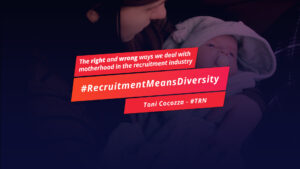Door 10 of our #TRN Advent Calendar. We talk about the latest trends that’s emerging in Recruitment, Remote Working the pros and cons and whether this is the way the industry is going.
When it comes to making a better employer branding and talent acquisition strategy we always start by looking at what they’re doing in Silicon Valley. Apart from ping-pong tables and giant slides, a synonymous perk, is the ability to do your job from home.
Remote working, digital nomad or work from home, no matter what you might call it, this perk is gaining significant traction with many companies far and wide.
Armed with a smartphone and a laptop most office based jobs can set-up in the comfort of your own home and the employee can still do the same job that they could do while at their desk in the office, which makes the prospect of remote working appealing.
In this article we look at the pros and cons of introducing remote working to your recruitment business, and whether this really is the way the future of recruitment is going.
The pros of remote working
- With advanced CRM and reporting technology being adapted by most recruitment agencies, it’s easier for managers to pull reports and statistics on the work put in by their remote workers, meaning there is less distrust.
- When it comes to recruitment, sometimes getting the best out of your time means doing some tasks at strange hours. A remote working consultant can effectively manage their time so they’re able to get the best results from their efforts.
- Employees being safe in the knowledge that you offer flexibility for your consultants to stay at home when it comes to things like childcare, family reasons (or even a snowday) will promote loyalty, trust, appreciation and engagement from your people.
- A company that offers the perk of remote working will appear more inclusive of various situations and promote positive workplace culture, helping with talent attraction when it comes to getting the best people on-board.
- According to this survey, 78% of people call in sick because they’re suffering from stress or personal issues. People who are given the option to work from home could potentially reduce the amount of sick days taken.
- Remote working doesn’t always means setting up on the sofa or home office. The flexibility to work out of the office will allow for increased productivity while a consultant zips between client meetings and BD.
The cons of remote working
- When a consultant is out of the office environment for a long period of time it’s easy for them to become siloed, missing out on the buzz of an office.
- When you’re out of the working environment some people will find it hard to maintain the same level of discipline, without the watchful gaze of a manager, and many distractions at your fingers tips, like finishing a box-set on Netflix maybe?
- Technology might not be as cutting-edge in the home (basic wi-fi package). Especially when the new ways of recruiting can involve heavy usage video calling.
- A potential lack of trust from managers and co-workers. Remote workers may need to work extra hard to prove that they’re doing their work from home or spend some time convincing their superiors.
Is this the way the future of recruitment is going?
Technology and cultural shifts have paved the way for a more positive reflection on the idea of remote working. This certainly is the future of recruitment, as companies already start to implement remote working strategies, it’s up to you to adapt and carve out your own strategy or risk losing employees to rival recruiters that are more open to the benefits of working at home.
Share :




